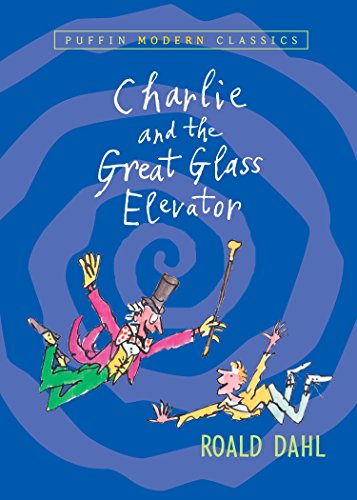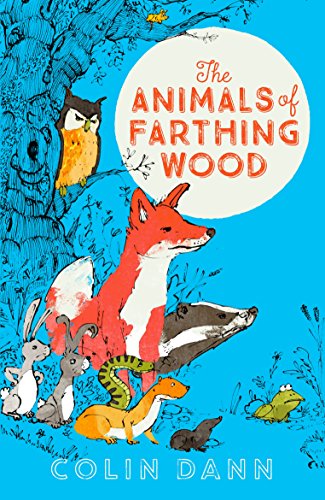-
Thomasina
Paul Gallico
Paperback (HarperCollins Children's Books, March 1, 2011)From the author of "The Snow Goose". "I was aware, from the very beginning, that I was a most unusual cat!" Thomasina is the beloved pet cat of 7-year-old Mary Ruadh, whose strict father is the town's vet. When Thomasina falls ill, her father sees no other option but to put the cat down. Heartbroken by his cruelty, Mary stops speaking to her father and falls dangerously ill herself. Meanwhile, Thomasina is rescued by Lori, a young woman who lives alone in an isolated glen and is rumoured to be a witch with healing powers. While Lori helps Thomasina recover from her ordeal, Mary's health continues to deteriorate and it is only when Thomasina makes her miraculous return, on a dark and stormy night, and is reunited with her owner that Mary is pulled from the brink of death.
-
The Way We Live Now
Anthony Trollope, David Brooks
(Modern Library, Aug. 14, 2001)'Trollope did not write for posterity,' observed Henry James. 'He wrote for the day, the moment; but these are just the writers whom posterity is apt to put into its pocket.' Considered by contemporary critics to be Trollope's greatest novel, The Way We Live Now is a satire of the literary world of London in the 1870s and a bold indictment of the new power of speculative finance in English life. 'I was instigated by what I conceived to be the commercial profligacy of the age,' Trollope said. His story concerns Augustus Melmotte, a French swindler and scoundrel, and his daughter, to whom Felix Carbury, adored son of the authoress Lady Carbury, is induced to propose marriage for the sake of securing a fortune. Trollope knew well the difficulties of dealing with editors, publishers, reviewers, and the public; his portrait of Lady Carbury, impetuous, unprincipled, and unswervingly devoted to her own self-promotion, is one of his finest satirical achievements. His picture of late-nineteenth-century England is a portrait of a society on the verge of moral bankruptcy. In The Way We Live Now Trollope combines his talents as a portraitist and his skills as a storyteller to give us life as it was lived more than a hundred years ago.
-
Atlas Shrugged
Ayn Rand
Paperback (Penguin Books, Oct. 1, 2007)"Atlas Shrugged" is the astounding story of a man who said that he would stop the motor of the world - and did. Tremendous in scope, breathtaking in its suspense, "Atlas Shrugged" stretches the boundaries further than any book you have ever read. It is a mystery, not about the murder of a man's body, but about the murder - and rebirth - of man's spirit.
-
A Prayer for Owen Meany: Deluxe Modern Classic
John Irving
Paperback (William Morrow Paperbacks, April 22, 2014)“A remarkable novel. . . . A Prayer for Owen Meany is a rare creation in the somehow exhausted world of late twentieth-century fiction—it is an amazingly brave piece of work . . . so extraordinary, so original, and so enriching. . . . Readers will come to the end feeling sorry to leave [this] richly textured and carefully wrought world.” — STEPHEN KING, Washington PostA PBS Great American Read Top 100 PickI am doomed to remember a boy with a wrecked voice—not because of his voice, or because he was the smallest person I ever knew, or even because he was the instrument of my mother's death, but because he is the reason I believe in God; I am a Christian because of Owen Meany.In the summer of 1953, two eleven-year-old boys—best friends—are playing in a Little League baseball game in Gravesend, New Hampshire. One of the boys hits a foul ball that kills the other boy's mother. The boy who hits the ball doesn't believe in accidents; Owen Meany believes he is God's instrument. What happens to Owen after that 1953 foul ball is extraordinary.“Roomy, intelligent, exhilarating, and darkly comic . . . Dickensian in scope . . . Quite stunning and very ambitious.” — Los Angeles Times Book Review“Brilliantly cinematic . . . Irving shows considerable skill as scene after scene mounts to its moving climax." — ALFRED KAZIN, New York Times
-
Charlie and the Great Glass Elevator
Roald Dahl, Quentin Blake
Paperback (Puffin Books, May 5, 2005)Now that Charlie has won the chocolate factory, what's next? Even wilder adventures, that'swhat! Join him, Grandpa Joe, and, of course, Willy Wonka for the amazing, intergalactic sequel to Charlie and the Chocolate Factory! R
R
-
Peter Pan
J.M. Barrie, F.D. Bedford, Anne McCaffrey
Paperback (Modern Library, Oct. 12, 2004)Peter, Wendy, Captain Hook, the lost boys, and Tinker Bell have filled the hearts of children ever since Barrie's play first opened in London in 1904 and became an immediate sensation. Now this funny, haunting modern myth is presented with Bedford's wonderful illustrations, which first appeared in the author's own day, have long been out of print, and have never been equaled. X
X
-
The Narrative of Arthur Gordon Pym of Nantucket
Edgar Allan Poe, Jeffrey Meyers
Paperback (Modern Library, May 14, 2002)After reading an 1836 newspaper account of a shipwreck and its two survivors, Edgar Allan Poe penned his only novel, The Narrative of Arthur Gordon Pym of Nantucket, the story of a stowaway on a Nantucket whaleship who finds himself enmeshed in the dark side of life at sea: mutiny, cannibalism, savagery—even death. As Jeffrey Meyers writes in his Introduction: “[Poe] remains contemporary because he appeals to basic human feelings and expresses universal themes common to all men in all languages: dreams, love, loss; grief, mourning, alienation; terror, revenge, murder; insanity, disease, and death.” Within the pages of this novel, we encounter nearly all of them.This Modern Library Paperback Classic reprints the text of the original 1838 American edition.
-
Adventures of Huckleberry Finn
Mark Twain, George Saunders
Paperback (Modern Library, Aug. 14, 2001)Introduction by George Saunders Commentary by Thomas Perry Sergeant, Bernard DeVoto, Clifton Fadiman, T. S. Eliot, and Leo Marx “All modern American literature comes from one book by Mark Twain called Huckleberry Finn,” Ernest Hemingway wrote. “It’s the best book we’ve had.” A complex masterpiece that spawned controversy right from the start (it was banished from the Concord library shelves in 1885), it is at heart a compelling adventure story. Huck, in flight from his murderous father, and Jim, in flight from slavery, pilot their raft through treacherous waters, surviving a crash with a steamboat and betrayal by rogues. As Norman Mailer has said, “The mark of how good Huckleberry Finn has to be is that one can compare it to a number of our best modern American novels and it stands up page for page.” Z
Z
-
The Animals of Farthing Wood
Colin Dann
Paperback (Egmont UK, Oct. 1, 2016)We must all find a new home. Now—before it’s too late! Farthing Wood is being bulldozed, and there’s a drought. Fox, Badger, Toad, Tawny Owl, Mole, and the other animals must band together and set off to a far-away nature reserve. Their journey is full of adventure and fraught with disasters, and the animals must work together to survive. The Animals of Farthing Wood is one of the most popular animal stories in children’s literature and is still in print nearly 40 years after first publication. X
X
-
David Copperfield
Charles Dickens, David Gates
Paperback (Modern Library, Nov. 28, 2000)Hugely admired by Tolstoy, David Copperfield is the novel that draws most closely from Charles Dickens's own life. Its eponymous hero, orphaned as a boy, grows up to discover love and happiness, heartbreak and sorrow amid a cast of eccentrics, innocents, and villains. Praising Dickens's power of invention, Somerset Maugham wrote: "There were never such people as the Micawbers, Peggotty and Barkis, Traddles, Betsey Trotwood and Mr. Dick, Uriah Heep and his mother. They are fantastic inventions of Dickens's exultant imagination...you can never quite forget them."This Modern Library Paperback Classics edition includes a new Introduction by Pulitzer Prize finalist David Gates, in addition to new explanatory notes.
-
Redburn
Herman Melville, Elizabeth Hardwick
Paperback (Modern Library, Sept. 16, 2002)Drawn from Melville’s own adolescent experience aboard a merchant ship, Redburn charts the coming-of-age of Wellingborough Redburn, a young innocent who embarks on a crossing to Liverpool together with a roguish crew. Once in Liverpool, Redburn encounters the squalid conditions of the city and meets Harry Bolton, a bereft and damaged soul, who takes him on a tour of London that includes a scene of rococo decadence unlike anything else in Melville’s fiction. In her Introduction, Elizabeth Hardwick writes, “Redburn is rich in masterful portraits—a gallery of wild colors, pretensions and falsehoods, fleeting associations of unexpected tenderness. . . . Redburn is not a document; it is a work of art by the unexpected genius of a sailor, Herman Melville.”This Modern Library Paperback Classic is set from the text of the first American edition of 1849.
-
The Collected Dorothy Parker
Dorothy Parker
Paperback (Penguin Books, Limited (UK), Sept. 1, 2007)Dorothy Parker, more than any of her contemporaries, captured the spirit of her age in her writing. The decadent 1920S and 1930s in New York were a time of great experiment and daring for women. For the rich, life seemed a continual party, but the excesses took their emotional toll. With a biting wit and perceptive insight, Dorothy Parker examines the social mores of her day and exposes the darkness beneath the dazzle. Her own life exemplified this duality, for a while she was one of the most talked-about women of her day, she was also known as a "masochist whose passion for unhappiness knew no bounds". As philosopher Irwin Edman said, she was "a Sappho who could combine a heartbreak with a wisecrack". Her dissection of the jazz age in poetry and prose is collected in this volume along with articles and reviews.